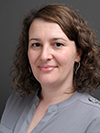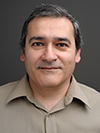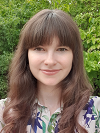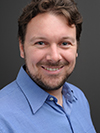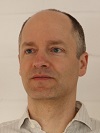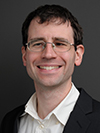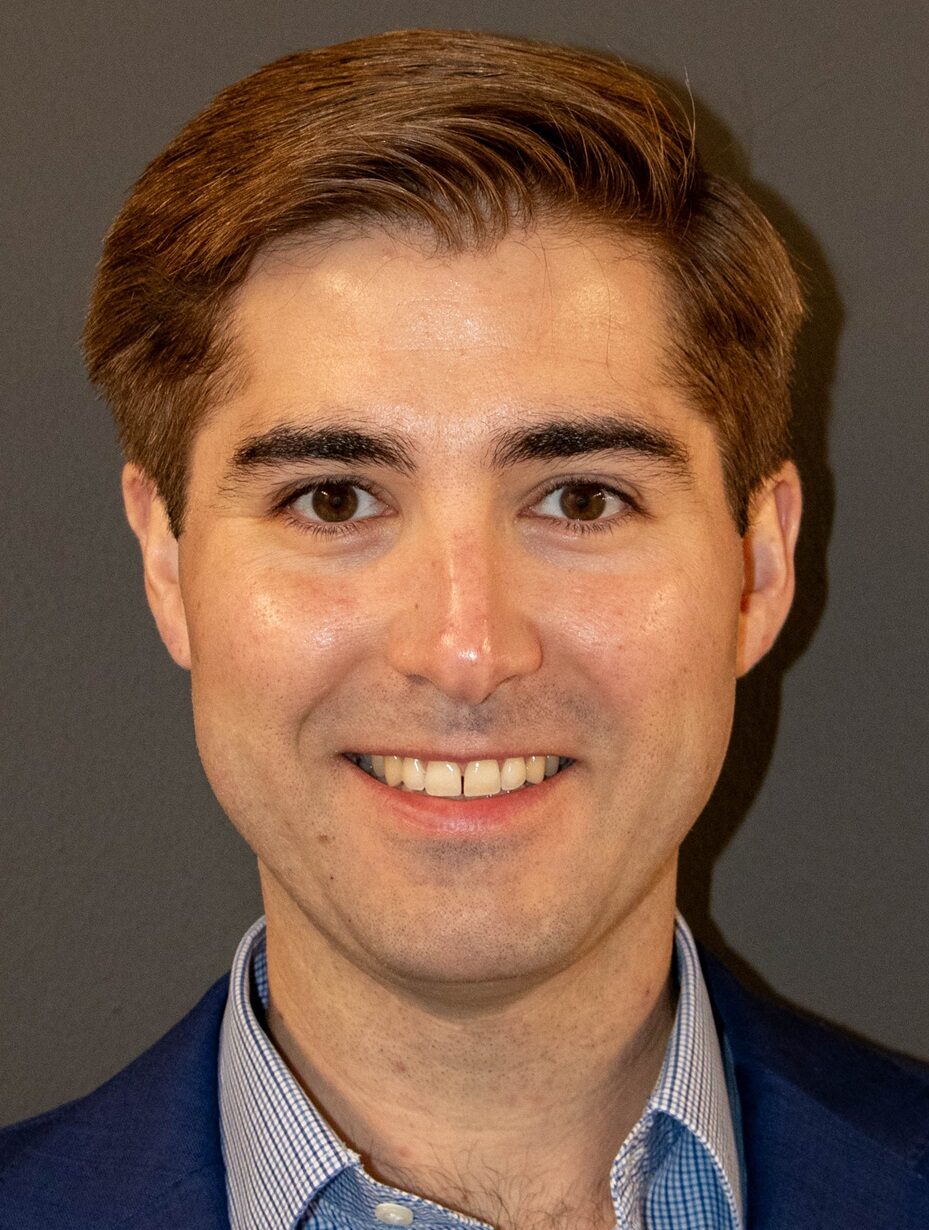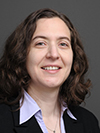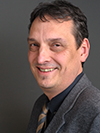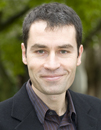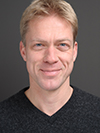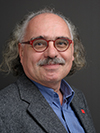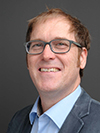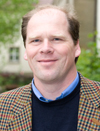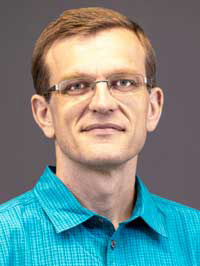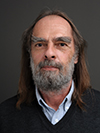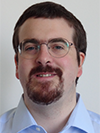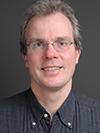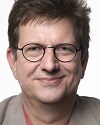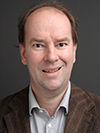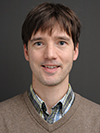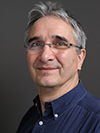Professor Dr. Kurt Aulenbacher
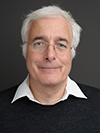 |
Institute for Nuclear Physics J.-J.-Becherweg 45 55128 Mainz Tel.: +49 6131 39-25804 Email | Homepage |
Director Structural Initiative: Mainz Energy-Recovering Superconducting Accelerator (MESA) Research: Accelerator physics, spin dynamics and polarimetry at accelerators,spin-polarized electron sources, high brightness photo emission, parity violation in electron–nucleon scattering |
Professor Dr. Sonia Bacca
Professor Dr. Niklaus Berger
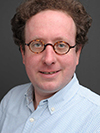 |
Institute for Nuclear Physics Staudingerweg 9 55128 Mainz Tel.: +49 6131 39-26266 Email | Homepage |
Deputy Director Structural Initiative: PRISMA Detector Lab Research: Hadron spectroscopy, lepton flavor violation, muon physics, parity violating electron scattering, silicon pixel tracking detectors, track reconstruction, data acquisition systems |
Professor Dr. Sebastian Böser
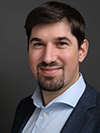 |
Institute of Physics Experimental Particle and Astroparticle Physics (ETAP) Staudingerweg 7 55128 Mainz Tel.: +49 6131 39-23865 Email | Homepage |
Section Leader Research Area C: Exploring the weakly interacting universe Research: Astroparticle physics, precision measurement of neutrino oscillations, neutrino astronomy, experimental search for supernova neutrinos, large-area photosensor development |
Dr. Andrea Brogna
Professor Dr. Dmitry Budker
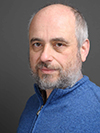 |
Institute of Physics Quantum, Atomic and Neutron Physics (QUANTUM) Staudingerweg 7 55128 Mainz Email | Homepage |
Research: Testing fundamental symmetries of nature development of all-optical sensors based on atomic vapors and color centers in diamond, zero- and ultralow-field nuclear magnetic resonance (ZULF-NMR), searches for dark matter and dark energy constituents (GNOME, CASPEr), and physics of sodium laser guide stars |
Professor Dr. Volker Büscher
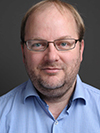 |
Institute of Physics Experimental Particle and Astroparticle Physics (ETAP) Staudingerweg 7 55128 Mainz Tel.: +49 6131 39-20399 Email | Homepage |
Deputy Section Leader Research Area D: Physics at high-energy accelerators Research: Experimental high-energy physics, supersymmetry and dark matter, Higgs physics |
Professor Dr. Achim Denig
 |
Institute for Nuclear Physics J.-J.-Becherweg 45 55128 Mainz Tel.: +49 6131 39-25830 Email | Homepage |
Deputy Section Leader Research Area A: Exploring the intensity frontier at MESA Research: Hadron physics with electromagnetic probesprecision measurements of hadronic form factors, hadron spectroscopy (light quark and charm sector), dark sector physics, hardware: tracking detectors (drift chambers, GEM detectors) |
Professor Dr. Christoph Düllmann
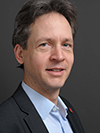 |
Institute for Nuclear Chemistry Fritz-Strassmann-Weg 2 55128 Mainz Tel.: +49 6131 39-25852 Email | Homepage |
Research: Experiments at the limits of stability: exploring physical and chemical properties of superheavy elements New Elements: Production and Z-Identification, chemical properties of transactinides, chemical theory, nuclear chemical studies, high-precision mass measurements of exotic nuclei, radioisotope production, purification and processing for nuclear science experiments |
Professor Dr. Jens Erler
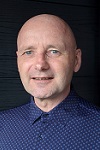 |
Institute for Nuclear Physics Theory Group J.-J.-Becherweg 45 55128 Mainz Tel.: +49 6131 39-23636 Email | Homepage |
Research: Global electroweak fits, low energy Standard Model tests, precision measurements at colliders, applications of perturbative QCD,new gauge symmetries, supersymmetry, string theory, Bayesian data analysis |
Professor Dr. Martin Fertl
 |
Institute of Physics Quantum, Atomic and Neutron Physics (QUANTUM) Staudingerweg 7 55128 Mainz Tel.: +49 6131 39-37687 Email | Homepage |
Deputy Section Leader Research Area B: Precision physics at the low-energy frontier Research: Low-energy tests of fundamental symmetries, physics with ultracold neutrons, precision magnetometry with magnetic resonance techniques,neutrino mass measurement, frequency-based single electron spectroscopy, precision measurement of the muon’s anomalous magnetic moment |
Professor Dr. Wolfgang Gradl
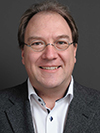 |
Institute for Nuclear Physics J.-J.-Becherweg 45 55128 Mainz Tel.: +49 6131 39-25871 Email | Homepage |
Research: Hadron spectroscopy: charmonium and charmonium-like states, amplitude analysis, flavor physics: search for CP-violation and effects of new physics in rare hadronic B-decays and hadronic decays of D mesons |
Dr. Franziska Hagelstein
Professor Dr. Martin Hanke-Bourgeois
Professor Dr. Julia Harz
 |
Institute of Physics Theoretical High Energy Physics (THEP) Staudingerweg 9 55128 Mainz Tel.: +49 6131 39-28847 Email | Homepage |
Research: Physics beyond the Standard Model, astroparticle physics / particle cosmology, baryogenesis, neutrinos, dark matter, lepton and baryon number violating interactions, novel probes of new physics, phenomenology and advancement of methods for early universe physics |
Professor Dr. Florian Hug
Professor Dr. Tobias Hurth
 |
Institute of Physics Theoretical High Energy Physics (THEP) Staudingerweg 7 55128 Mainz Tel.: +49 6131 39-22730 Email | Homepage |
Research: Particle physics phenomenology within and beyond the SM, interplay of collider and flavour physics in the New Physics Search, low-energy-supersymmetry, SCET and other field theoretical methods, QCD corrections, CP violation |
Professor Dr. Hans Jockers
Professor Dr. Joachim Kopp
Professor Dr. Tyler Kutz
Professor Dr. Livia Ludhova
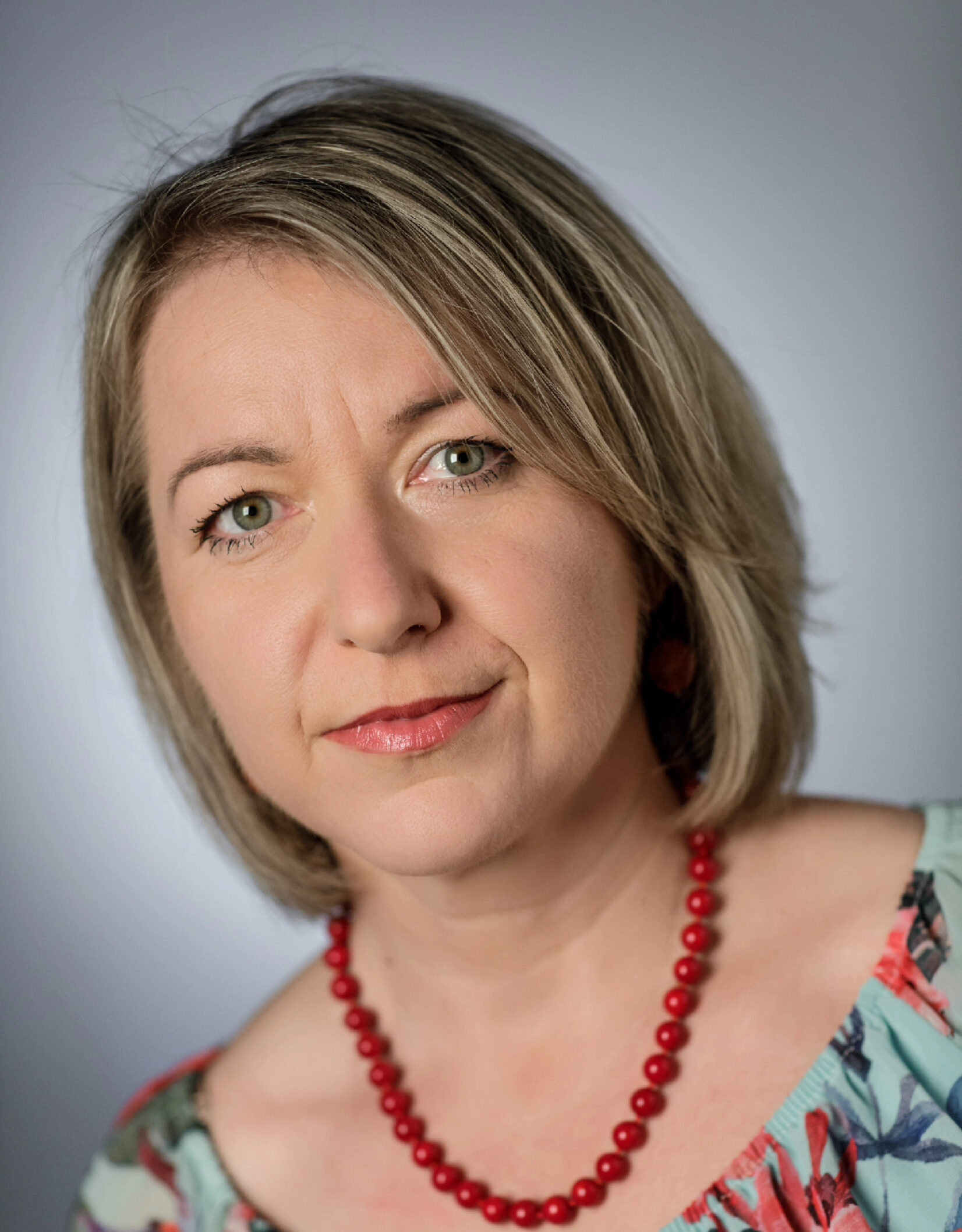 |
Institute of Physics Experimental Particle and Astroparticle Physics (ETAP) Staudingerweg 7 55128 Mainz E-Mail | Homepage Neutrino Group of Livia Ludhova Private Homepage |
Research: Low-energy neutrino physics, solar neutrinos, geoneutrinos, large-volume liquid-scintillator detectors |
Professor Dr. Frank Maas
 |
Institute for Nuclear Physics J.-J.-Becherweg 45 55128 Mainz Tel.: +49 6131 39-27447 Email | Homepage |
Section Leader Research Area A: Exploring the intensity frontier at MESA Research: Electromagnetic structure of hadrons, parity-violating electron scattering, particle detectors, particle beam polarimetry, cryo-targets, detector electronics |
Professor Dr. Lucia Masetti
Dr. Harald Merkel
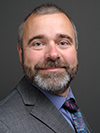 |
Institute for Nuclear Physics J.-J.-Becherweg 45 55128 Mainz Tel.: +49 6131 39-25812 Email | Homepage |
Research: Electron scattering experiments, electro-magnetic structure of the nucleon, strangeness in nuclei, parity violating electron scattering, dark photon searches, nuclear astroparticle physics |
Professor Dr. Harvey B. Meyer
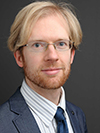 |
Institute for Nuclear Physics Theory Group J.-J.-Becherweg 45 55128 Mainz Tel.: +49 6131 39-20350 Email | Homepage |
Section Leader Research Area E: Theory and phenomenology of fundamental interactions Research: Lattice QCD, hadron structure, finite-temperature QCD, computational methods in particle physics |
Professor Dr. Stefan Müller-Stach
Professor Dr. Matthias Neubert
 |
Institute of Physics Theoretical High Energy Physics (THEP) Staudingerweg 7 55128 Mainz Tel.: +49 6131 39-23681 Email | Homepage |
Cluster Coordinator and Director Structural Initiative: Mainz Institute for Theoretical Physics (MITP) Research: Theoretical elementary-particle physics, QCD and collider physics, flavor physics and CP violation, effective field theories, physics beyond the Standard Model |
Professor Dr. Uwe Oberlack
Professor Dr. Michael Ostrick
Professor Dr. Josef Pochodzalla
Professor Dr. Randolf Pohl
Professor Dr. Ferdinand Schmidt-Kaler
Dr. Christian Schmitt
Professor Dr. Pedro Schwaller
 |
Institute of Physics Theoretical High Energy Physics (THEP) Staudingerweg 9 55128 Mainz Tel.: +49 6131 39-20507 Email | Homepage |
Section Leader Research Area D: Physics at high-energy accelerators Research: Beyond the Standard Model physics, collider phenomenology, particle cosmology, baryogenesis, dark matter, physics at future colliders, gravitational waves |
Professor Dr. Concettina Sfienti
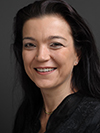 |
Institute for Nuclear Physics J.-J.-Becherweg 45 55128 Mainz Tel.: +49 6131 39-25841 Email | Homepage |
Representative Irène Joliot-Curie Programme Research: Structure of matter, new particles and interactions, physics of hadrons, strangeness in nuclear physics, neutron stars and the nuclear Equation of State |
Professor Dr. Hubert Spiesberger
Dr. Carlos Tamarit
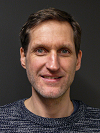 |
Institute of Physics Theoretical High Energy Physics (THEP) Staudingerweg 9 55128 Mainz Tel.: +49 6131 39-23682 Email | Homepage |
Research: Particle physics in the early Universe: finite temperature and phase transitions, baryogenesis, gravitational waves. Non-equilibrium and nonperturbative methods in quantum field theory |
Professor Dr. Stefan Tapprogge
 |
Institute of Physics Experimental Particle and Astroparticle Physics (ETAP) Staudingerweg 7 55128 Mainz Tel.: +49 6131 39-25610 Email | Homepage |
Research: Experimental particle physics, precision measurements of fundamental interactions, search for new physics processes, development of trigger and data acquisition systems, detector developments for upgrades |
Professor Dr. Marc Vanderhaeghen
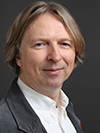 |
Institute for Nuclear Physics Theory Group J.-J.-Becherweg 45 55128 Mainz Tel.: +49 6131 39-23695 Email | Homepage |
Section Leader Research Area B: Precision physics at the low-energy frontier Research: Hadron structure, QCD and exclusive processes, parton distributions, real and virtual Compton scattering processes, spin structure of the nucleon |
PD Dr. Georg von Hippel
Dr. Rainer Wanke
Professor Dr. Alfons Weber
Professor Dr. Stefan Weinzierl
Dr. Quirin Weitzel
Dr. Klaus Wendt
Professor Dr. Hartmut Wittig
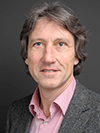 |
Institute for Nuclear Physics Theory Group J.-J.-Becherweg 45 55128 Mainz Tel.: +49 6131 39-26808 Email | Homepage |
Cluster Coordinator and Director Mainz Physics Academy Research: Lattice QCD: precision observables, muon g – 2, nucleon structure, hadron spectroscopy and resonances, machine learning techniques |
Professor Dr. Michael Wurm
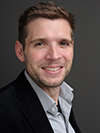 |
Institute of Physics Experimental Particle and Astroparticle Physics (ETAP) Staudingerweg 7 55128 Mainz Tel.: +49 6131 39-23928 Email | Homepage |
Deputy Section Leader Research Area C: Exploring the weakly interacting universe Research: Low energy neutrino physics: search for sterile neutrinos in the SOX experiment, spectroscopy of solar neutrinos in the Borexino experiment, preparation and construction of the JUNO detector for determining the neutrino mass hierarchy, further development of organic liquid scintillators for future neutrino experiments |
Dr. Felix Yu
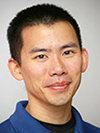 |
Institute of Physics Theoretical High Energy Physics (THEP) Staudingerweg 7 55128 Mainz Tel.: +49 6131 39-25796 Email | Homepage |
Research: Collider physics, Higgs physics, flavor physics and CP violation, physics beyond the Standard Model, dark matter and dark sectors, supersymmetry, axions and axion-like particles, future colliders and physics beyond colliders |

